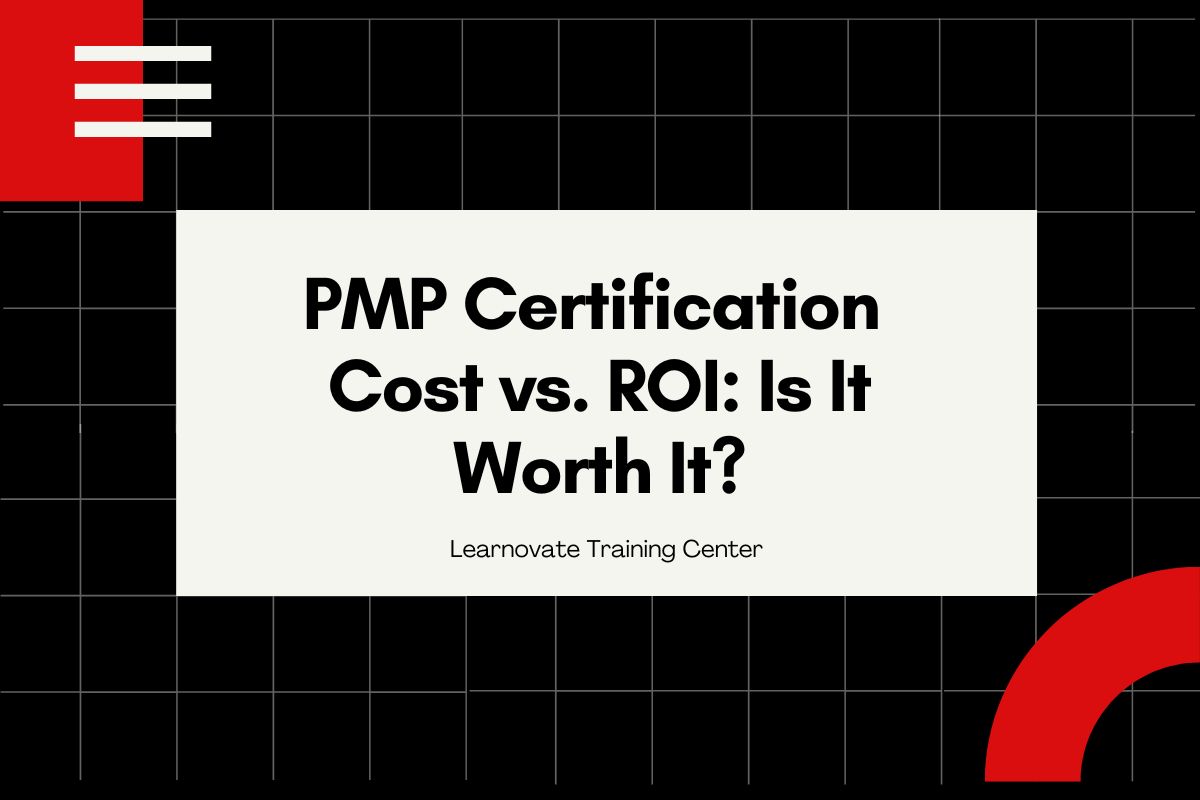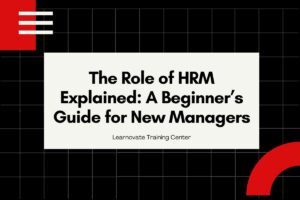The need for skilled project managers is on the rise in the UAE. You might wonder if the cost of getting a PMP certification is worth it. This article examines whether getting the Project Management Professional certification is a smart move, its value, and how it can boost your career.
Using data from PMI and industry surveys, you will learn how this certification can open more career doors.
Key Takeaways
- PMP certification can enhance your career opportunities in project management.
- The growing PMP certification cost is balanced by increased salary potential.
- PMP ROI is favorable, even in booming job markets like the UAE.
- Certification value varies based on the industry and job demand.
- Investing in PMP certification can lead to significant career advancement.
- Understanding your local job market will help assess the right time for certification.
Understanding PMP Certification
PMP certification is a big step in project management. It makes you a Project Management Professional, which means you’re recognized for your skills and more credible in many fields.
The PMP certification comes from the Project Management Institute (PMI). It sets a standard for checking your project management knowledge. To get certified, you must pass the PMP exam. This test checks if you can lead and manage projects well.
To apply for PMP certification, you need to meet specific requirements. You must have the proper education and project management experience. You also need to show proof of leading projects and your education. This makes sure you know your stuff about project management.
Getting PMP certified can boost your career. You’ll learn skills to handle big projects. This makes you very valuable to your team.
Importance of PMP Certification in Project Management
PMP certification is key in project management. It shows you are an expert, a mark of skill that employers look for—getting certified means you know the best ways to manage projects, which can make a big difference.
Having a PMP certification can lead to more job chances. It makes you stand out in a busy job market. Employers like to see this certification because it shows you are serious about your career and know your stuff.
It also boosts your career. Many people make more money after getting PMP certified. Studies show that certified managers earn more than those who do not. Hearing from others in the field shows how valuable this certification is.
PMP Certification Cost Breakdown
Understanding the PMP certification cost involves considering several factors. These include training fees, application costs, and exam expenses. You might spend $500 to $3,000, covering all these expenses. Researching different training centers to find one that matches your budget and needs is key.
The PMP exam fees are a big part of the overall cost. The Project Management Institute (PMI) sets these fees based on membership status. Members usually pay less than non-members, making PMI membership a wise financial choice for many.
Do not forget about hidden costs. These can include study materials, extra practice exams, and retake fees if you do not pass the exam first. These certification expenses can add up and make the total cost higher than expected.
Knowing all these costs helps you budget better. Understanding your financial commitments can improve your preparation. This can lead to success in getting your PMP certification.
Do Job Opportunities justify PMP Certification Cost?
Getting a PMP certification can help your career. It shows you have the skills employers want, and adding PMP to your resume makes you stand out more.
Studies show PMP holders often earn more. Companies pay certified people more because they know they’re getting top talent, so you could get a better job and earn more money.
In the UAE, having a PMP certification is key to finding a good job. Tech and construction companies look for people with this certification, and more projects give more chances to find a job in these fields.
Exploring the Benefits of PMP Certification
Getting a PMP certification brings many benefits. It boosts your project management skills a lot. One significant advantage is that you become more recognized in your field. Employers look for PMP-certified people because they know a lot about project management.
PMP certification helps your career grow. Many people get promoted faster and earn more money after getting certified. Studies show that PMP-certified people get about a 20% pay raise compared to non-certified ones.
With this certification, you join a worldwide network of project management experts. This network opens up new job chances in different fields. You can use your skills more and access unique job listings and training resources.
Employers value the skills you get from being certified. This can lead to more important jobs and help your career keep going up. Getting a PMP certification gives you the tools to manage projects well. It also makes you a leader in your field, setting you up for success in the long run.
PMP Exam Fees vs. Long-Term Career ROI
When you think about PMP exam fees, consider the long-term benefits. Getting a PMP certification can open doors to better job opportunities. Many employers look for this credential when hiring for project management roles.
Studies show that PMP-certified people often make more money than those without it. They can earn up to 20% more each year. This shows how valuable a PMP certification can be.
Having a PMP certification also makes you more appealing to employers. This can lead to more job security and a longer career. Research backs this up, showing that certified individuals tend to have longer, more rewarding careers.
Do not consider the PMP exam fees a one-time cost. Consider the long-term benefits, such as higher income and career growth. This understanding can help you decide if getting certified is right for you.
Factors Influencing PMP Certification Cost
When you think about getting PMP certified, several factors affecting certification cost come into play. Knowing these can help you plan your budget better. This way, you can make smart choices through the certification process.
Choosing where to get your training is a big decision. Different places charge different training center fees. This is because the quality of education and resources varies. For example, well-known centers usually cost more because they offer more and have experienced teachers.
Where you live also matters. Costs can change based on where you are. Cities often have higher prices than rural areas. Looking for local training options that fit your budget is a good idea.
Lastly, whether you take classes online or in person affects your costs. Online courses are usually cheaper than in-person ones, making online learning a more budget-friendly option for many.
The Right Training Center for You: Learnovate Training Center
Finding the right training center for your PMP certification is key. The learnovate training center is known for its deep dive into project management. When looking at different PMP training options, focus on a few important things for the best learning experience.
- Instructor Expertise: Choose centers with instructors who know their stuff and have success stories.
- Course Structure: Good training should have a clear plan that covers all PMP exam topics.
- Student Support: Ensure the center offers strong support after training, as study aids and help with problems.
- Student Reviews: Check out what past students say to see if the center delivers.
The Learnovate training center excels in these areas and is a top pick for those aiming for PMP certification. Remember, proper training can change your career path, so take your time to pick the best training center.
Success Stories: PMP Certification ROI
Real-life PMP success stories show the real benefits of getting a PMP certification. Many people see significant career changes after getting certified. They get more job duties and even get promoted, taking their careers to new levels.
Studies show that getting certified can lead to significant salary boosts. For example, many project managers’ salaries have increased by over 20%. Employers say that having a PMP certification makes a candidate stand out, making them more attractive to hire.
There are many PMP success stories across various industries. Some people move up to senior project management roles, and others use their certifications to get into strategic positions in their companies. Everyone agrees that PMP certification can lead to career growth that was once out of reach.
Alternatives to PMP Certification
PMP certification is often seen as the top choice in project management. However, many look for other options that offer great benefits. These alternatives can help you reach your career goals.
The Certified ScrumMaster (CSM) certification is a top pick for agile project management. It helps you grow in agile frameworks and teamwork and is well-liked in companies that use agile methods.
PRINCE2 certification is significant in Europe and growing in the UAE. It organizes project management and stresses the need for flexible approaches. It is perfect for those wanting to learn more about project governance.
Lean Six Sigma is great for improving efficiency and quality in projects. It mixes lean manufacturing with Six Sigma. Many companies value this certification, mainly in sectors focused on bettering processes.
Each choice has its own cost and job market value. For example, PMP might cost a lot, but CSM or PRINCE2 could be cheaper. Pick one that’s recognized in your field to boost your job chances.
Deciding if PMP Certification is Right for You
Before you decide to get your PMP certification, think carefully about it. It’s important to evaluate PMP certification and see if it fits your career. Do a personal assessment of your skills and what you want to achieve. Think about your current job, chances for growth, and if PMP certification matches your plans.
Reflect on these important points to make a good choice:
- Current job position: Does your role benefit from project management skills?
- Career ambitions: What are your goals in the project management field?
- Job market: Is there a demand for PMP-certified professionals in your desired industry?
- Learning style: Do you prefer structured learning environments like formal training, or can you thrive through self-study?
- Financial investment: Are you prepared to invest in the costs associated with certification?
These points can help you determine if PMP certification is right for you. Knowing how it can boost your career can make you more fulfilled.
How to Prepare for the PMP Exam Effectively
Getting ready for the PMP exam requires a focused plan and good study habits. A solid study plan is key to feeling ready for the exam. Begin by setting clear goals and a realistic timeline to review all the needed materials.
Using a variety of study methods helps you understand better. Here are some strategies to consider:
- Structured Study Plan: Set aside specific times each week for studying. A routine helps solidify what you learn.
- Practice Exams: Practice tests can make you feel more comfortable with the exam format. They help reduce stress and improve focus.
- Group Study Sessions: Studying with others can bring different views and improve problem-solving skills.
- Utilizing Educational Resources: Use guides, online courses, and PMI resources for a thorough exam review.
Managing your time well is crucial in your prep journey. Keep track of your progress and adjust your study schedule as needed. Stay dedicated to your goals, using tips from those who have passed to refine your approach. Improve your exam readiness by learning from others and tailoring their methods to fit your learning style.
Cost-Effective Strategies for PMP Certification
Getting PMP certified can be pricey, but there are ways to save money. Planning your finances well is key to spending less and getting more from your certification. Consider budget-friendly strategies like joining local PMI chapters for cheaper study materials and networking.
Do not overlook scholarships. The Project Management Institute (PMI) has scholarships for future project managers. These can help with the cost of getting certified. Keep an eye on the PMI website for when to apply and what you need.
Another good option is asking your employer to help pay for your certification. Many companies see the value in having certified project managers and talking to your employer about this could save you a lot of money.
- Make a list of scholarships and what you need to apply.
- Find out about affordable study groups and resources at local PMI chapters.
- Talk to your employer about covering the cost of training and exams.
You can find cost-effective PMP options and budget-friendly strategies by looking into these options. These can help you get certified without breaking the bank. Taking these steps will make your certification journey more effortless and rewarding.
Conclusion
The PMP certification offers more than its cost, making it an excellent choice for career growth. While it may seem expensive, the benefits, like higher pay and better job chances, make it worth it. Experts agree that this certification proves your skills and helps you stand out in a tough job market.
When considering getting a PMP certification, consider your goals and the job market. Many companies want certified project managers because they bring order and efficiency. With project management constantly changing, getting certified can help your career.
Choosing to get a PMP certification can open up new career doors. Knowing the costs and benefits helps you plan a career path that fits your goals and the current job market.













